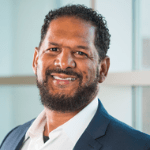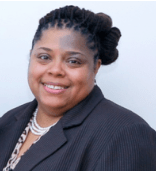October 03, 2019
Organizers:
Raj Madhavan, Maryland Robotics Center, University of Maryland, College Park, MD, USA
Sara Gallagher, Do Good Institute, University of Maryland, College Park, MD, USA
Mangesh Wadegaonkar, Cayuga Growth Partners, Gaithersburg, MD, USA
Miao Yu, Mechanical Engineering, University of Maryland, College Park, MD, USA
Finalists Selected for First-Ever Do Good Robotics Start-Up Competition
Five finalists, from dozens of applications across the globe, have been selected for the Do Good Robotics Start-Up Competition as part of the inaugural Do Good Robotics Symposium (DGRS). The 2019 Do Good Robotics Symposium, hosted by the Maryland Robotics Centerand the Do Good Institute, will bring together researchers, practitioners, and groups engaged in multidisciplinary and cross-cutting research and deployment of technologies for the benefit of our society and planet.
The Start-Up Competition aims to foster the entrepreneurial spirit and provide a platform to encourage researchers and practitioners to commercialize their ideas and prototypes that squarely place the benefit of society and the planet at its core. The Start-up Competition is intended to inspire, educate, and enable anyone who has an idea that would benefit humanity across the globe through AI technology to further develop and implement their solution.
Twenty applications from diverse issue areas ranging from intelligent water transportation to e-learning gamification technology were submitted from researchers and practitioners in several countries and from across the United States. Five entries were selected as finalists.
The 2019 Do Good Robotics Startup Competition Finalists are:
- Hear, here! (Led by Katherine August, Stevens Institute of Technology):Globally, people with hearing loss and deafness experience disparate treatment and a limited ability to participate in many settings including courts, healthcare, schools, workplaces, etc. Accommodation technology solutions are expensive, developed in silos, complicated with proprietary interfaces, not interoperable with mainstream communication technologies, and do not overcome hearing-related obstacles. Costs may be onerous and many decide not to provide accommodation. Hear, here! focuses on low-cost open source Sustainable AI Hearing Accessibility solutions using mainstream communications technologies including WiFi, mobile phones, and apps, with distribution bridging the technology gap even for those with limited resources.
- High Efficiency Water Segregator (HEWS) (Led by James Barbour): Commercial fish farms reduce the demand for ocean-caught fish. Unfortunately, cleaning costs and occasional disease outbreak limit the profitability and cleanliness of existing farms. These industry deficiencies primarily occur because filtered water is mixed with dirty water within tanks, never allowing any given tank to be fully cleaned. Our proposal is to develop an autonomous, robotic device to segregate water into filtered and unfiltered sections to significantly improve system cleanliness while reducing overall cleaning costs.
- Robotic Coastal Restoration (Led by Nathan Melenbrink, Harvard University):Robotic Coastal Restoration will create teams of robots that help protect and repair vulnerable or damaged land, starting with robots that build sand fences and plant dune grass to help protect coasts. Simple measures like these are proven to have a huge effect in building dunes and restoring eroded beaches. The limitations have been a shortage of available labor, and the difficulty (and damaging effect) of using heavy machinery to help. Environmental restoration with smaller, lighter autonomous robots will allow large-scale impact, first on coastlines, and later extending to other forms of land degradation, the global costs of which are estimated at $10 trillion per year.
- Sustainable AI (Led by Björn Lütjens, Massachusetts Institute of Technology): An increasing number of companies invest in carbon offsetting solutions to become CO2-neutral. One of the cheapest carbon offsetting solutions is active reforestation. Reforestation projects, however, historically display an issue of trust, caused by long-term ex-ante billing for potentially never realized CO2 offsets, which drives companies to invest in transparent, but expensive air carbon capture facilities. Reforestation companies could conduct accurate forest inventories (tree count, species, biomass, etc.) to transparently estimate the annual amount of tree-sequestered carbon, but current means of creating rain-forest inventories are too inaccurate and/or expensive.
- Walk With Me Prosthetics (Led by Danyal Malik, University of Maryland): In the developing world, amputees are not only burdened by an inability to walk, but they are also stigmatized within their own communities as a result of their disabilities. There are 40 million amputees in the developing world and only 5 percent of them have access to any form of prosthetic. Walk With Me Prosthetics is a nonprofit start-up that works to provide low-cost prosthetic legs to amputees in developing countries so that they can live better and happier lives.
On October 3, finalists will each pitch their ideas and prototypes to a panel of judges and an audience filled with like-minded peers, top executives and investors from the DC-Maryland-Virginia area. Following finalists’ pitches, there will be a showcase where they can speak with judges and guests further about their innovations.
A panel of judges will determine the grand prize winner who will receive $4,000 to advance their idea or prototype. All attendees will have the opportunity to cast their vote for their favorite finalist with “Do Good Dollars” and the finalist with the most votes will receive an audience-choice prize of $1,000. Winners of the Start-Up Competition will also get access to Do Good Accelerator programming, including coaching support to scale up their ventures. The $5,000 prizes are sponsored by the Maryland Robotics Center.
Judges for the Start-Up Competition include:
Maurice Boissiere
Chief Customer Officer, DataTribe
Biography: Maurice helps founders build their venture faster. With over 20-years of product leadership experience at early-stage ventures, he is the Chief Customer Officer at DataTribe, a cybersecurity start-up studio, and an Adjunct Professor at the University of Maryland where he teaches entrepreneurship and serves on the advisory board of the Dingman Center for Entrepreneurship at the Smith School of Business. He has his BS in Electrical Engineering from the Clark School at UMD and an MBA from The Wharton School.
Bridgette Gray
Executive Vice President, Per Scholas
Biography: Bridgette serves as the Executive Vice President, National Program. Previously, Bridgette led Per Scholas in the National Capital Region out of our downtown Silver Spring, MD location. Bridgette has spent more than 20 years helping people access and benefit from training and employment opportunities. She has led workforce development initiatives in the National Capital Region for several years, first as the Deputy Director for Year Up, an IT training organization for young adults; and next as the Executive Director for Career Team, an organization that provides training, case management and job placement services for the District’s most hard-to-serve residents.
Don Woodbury
Director, Innovation and Partnerships
A. James Clark School of Engineering, University of Maryland, College Park
Biography: Don joined the School of Engineering in January 2017 as the Director of Innovation and Partnerships where he is focused on enhancing innovation and impact in the research portfolio, fostering the development of big ideas, creating new partnerships with government and industry, and promoting innovation and entrepreneurship within the campus and region. Don has over 30 years of experience within the government science and technology community. He previously served as the Director of the Defense Advanced Research Projects Agency’s Strategic Technology Office, as a Program Manager in DARPA’s Tactical Technology Office, and as the Technical Director of the Homeland Security Advanced Research Projects Agency.
Call for Submissions
Robotics, automation, and artificial intelligence (AI) technologies hold tremendous potential in addressing many of the societal challenges exemplified in the seventeen sustainable development goals of the 2030 agenda of the United Nations. The inaugural 2019 Do Good Robotics Symposium (DGRS) aims to bring together researchers, practitioners, and groups engaged in multidisciplinary and cross-cutting research and deployment of technologies for the benefit of the society and the planet. To learn more about the Symposium, please visit http://dgrs.umd.edu.
As part of DGRS’19, we are organizing a Start-up Competition (SC) in line with the main theme of the Symposium. To foster the entrepreneurial spirit and provide a platform to encourage researchers and practitioners to commercialize their ideas and prototypes that squarely place the benefit of society and the planet at its core, we are inviting the robotics and AI communities to participate in the Start-up Competition.
The event is intended to inspire, educate, enable, and empower researchers, students, young professionals, and anyone else who has an idea or a vision to develop and implement solutions to benefit humanity across the globe. You get exclusive bragging rights to winning a premier AI & robotics start-up competition in the DC-Maryland-Virginia (DMV) region and a chance to get in front of top executives and investors from the DMV area who will be part of the audience or panel of judges. Winners of the DGRSC will also get access to Do Good Accelerator programming.
DGRSC will consist of three stages:
- In the first stage, submitted applications will be down-selected to arrive at a pool of qualified applicants based on a defined set of criteria developed by the organizers (see ‘Application Form’ information below).
- This will be followed by a remote engagement stage where the selected applicants will be coached to refine their pitches based on the proposal content in concert with an expert. The coaches will then critique, and provide technical and professional assistance to fine-tune the idea/product pitches.
- The final stage will allow for the refined pitches and content to be presented in front of a panel of experts and Symposium attendees.
Who can participate?
Anyone with an idea or a prototype using robotics, AI, and/or automation technology—with societal or environmental benefit at its core—is welcome to apply. Projects that have significant or well-established start-up capital or revenue cannot be considered at this time.
How to participate?
Interested applicants should complete the Application Form. Please email completed forms to <dgrs2019sc@gmail.com>.
Awards
Finalists will be competing for their share of up to $5,000 in prize funds.
Important Dates
- Submission of Application Forms: July 30, 2019
- Announcement of Selected Applicants: August 16, 2019
- Remote Expert Coaching: August 19 through September 15, 2019
- Final Presentations at DGRS’19: October 03, 2019



